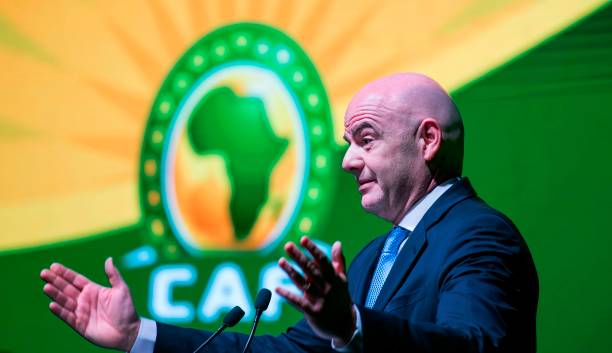
The FIFA World Cup is the biggest stage in international football, and African nations fight for a limited number of qualification spots through a highly competitive process. The Confederation of African Football (CAF) oversees the qualification process, which has evolved over the years to ensure the best teams represent the continent on the world stage.
In this guide, we’ll break down the current qualification format, past changes, key challenges, and the history of African participation in the World Cup.
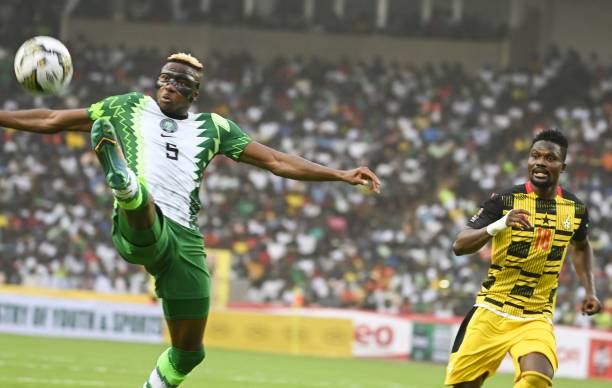
1. How Many African Teams Qualify for the World Cup?
- Africa has been allocated 9 automatic spots for the 2026 FIFA World Cup, an increase from the previous 5 spots in the 32-team World Cup format.
- A 10th team may qualify through an intercontinental playoff, where one African nation competes against teams from other continents for a final place.
This change reflects FIFA’s expansion of the tournament from 32 teams (2018 & 2022) to 48 teams (from 2026 onwards).
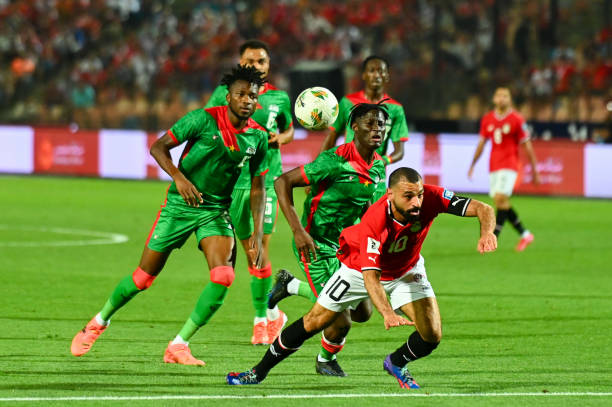
2. CAF World Cup Qualification Format (2026 Edition)
Step 1: Group Stage (54 Teams Compete for 9 Spots)
- All 54 African FIFA-affiliated nations are divided into 9 groups, each consisting of 6 teams.
- Each team plays home and away matches in a round-robin format.
- The 9 group winners qualify directly for the World Cup.
Step 2: Intercontinental Playoff for a 10th Spot
- The four best second-placed teams from the group stage enter a CAF playoff round.
- The winner of the playoff advances to an intercontinental playoff, facing teams from other continents (Asia, CONCACAF, Oceania, or South America).
- If the African representative wins this playoff, they qualify for the World Cup as the 10th African team.
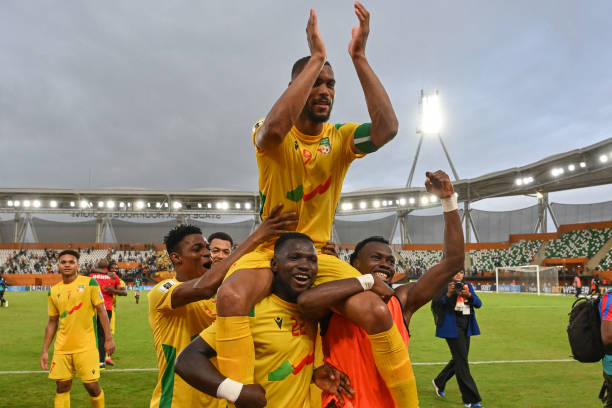
Example: For the 2022 World Cup, Ghana secured a spot by defeating Nigeria in the final round, while Egypt was eliminated by Senegal.
3. Key Changes in CAF World Cup Qualification Over the Years
The qualification process has changed multiple times due to FIFA’s evolving tournament structure.
| World Cup Edition | African Slots | Qualification Format |
|---|---|---|
| 1930-1962 | No African Representation | Africa had no direct entry |
| 1966 | 0 | African teams boycotted in protest of unfair slots |
| 1970-1978 | 1 | A single African team qualified |
| 1982-1990 | 2 | Two African teams were allowed |
| 1994-1998 | 3-5 | Increased to five slots in 1998 |
| 2002-2022 | 5 | Stable format with home-and-away playoffs |
| 2026 & Beyond | 9-10 | More teams qualify due to the 48-team expansion |
CHECK OUT TOP 3 FREE BETTING PREDICTION SITES
Accuratepredict.com Soccerpredictions.net Betloy.com
4. Challenges African Teams Face in World Cup Qualification
Despite having immense footballing talent, African teams face several obstacles in qualifying for the World Cup.
A. Limited Qualification Spots (Before 2026)
- Historically, Africa had fewer slots compared to Europe and South America, despite having over 50 competing nations.
- Many top African teams have missed out due to tough competition (e.g., Nigeria missing out on 2022, Egypt missing out despite having Mohamed Salah).
B. Tough Qualifiers & Unpredictability
- CAF’s qualification process is one of the toughest in the world, as only group winners advance.
- Big teams often eliminate each other (e.g., Ghana vs. Nigeria and Senegal vs. Egypt in 2022).
- The lack of second chances makes qualification highly unpredictable.
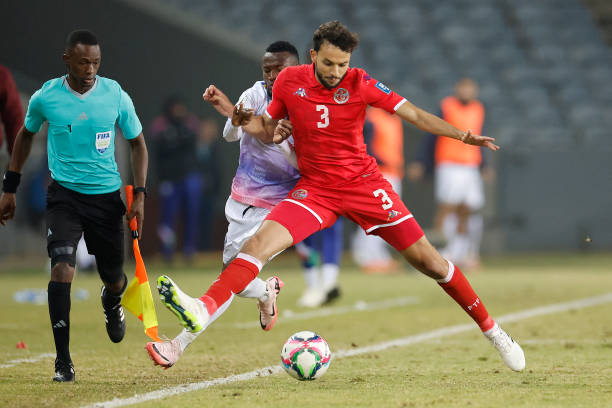
C. Poor Infrastructure & Off-Field Issues
- Some African nations struggle with poor training facilities and stadium conditions.
- Political and financial instability can impact team preparations and performances.
- Issues like unpaid player wages and federation mismanagement have affected countries like Cameroon and Nigeria.
5. Notable African Teams & Their World Cup Performances
Despite challenges, African teams have made historic runs in the World Cup.
| Team | Best Performance | Notable Achievements |
|---|---|---|
| Cameroon 🇨🇲 | Quarterfinals (1990) | First African team to reach the quarterfinals |
| Senegal 🇸🇳 | Quarterfinals (2002) | Beat France in group stage, reached last 8 |
| Ghana 🇬🇭 | Quarterfinals (2010) | Missed semifinals due to missed penalty vs. Uruguay |
| Morocco 🇲🇦 | Semifinals (2022) | First African nation to reach a World Cup semifinal |
| Nigeria 🇳🇬 | Round of 16 (multiple times) | One of Africa’s most consistent qualifiers |
Morocco’s 2022 run was historic, as they became the first African team to reach the semifinals, beating Spain and Portugal along the way.
SUGGESTED FOR YOU
Niger Delta Sports Festival Gets a Boost as Akwa Ibom Prepares to Host
6. What the Future Holds for African Football in the World Cup
With 9 direct spots from 2026, African football is set to become even more competitive on the global stage.
A. More Opportunities for African Teams
- More teams mean greater representation for African football at the highest level.
- Smaller footballing nations (e.g., Cape Verde, Uganda) have a better chance of qualifying.
B. Improved Investment & Development
- Countries are investing in youth academies and grassroots football to develop top talent.
- More African players are gaining European club experience, improving team quality.
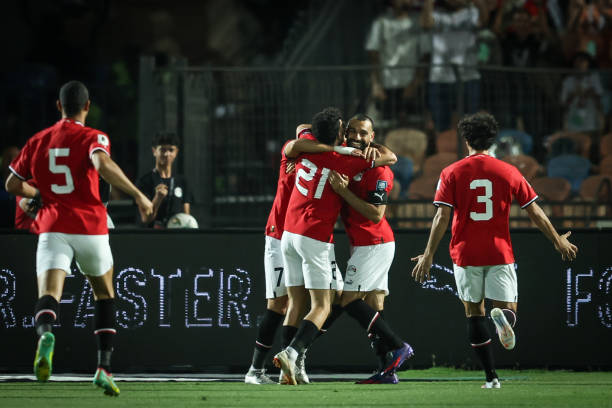
C. The Dream of an African World Cup Winner
- Pele once predicted an African nation would win the World Cup before 2000. While that didn’t happen, Morocco’s 2022 run showed it is possible.
- With better infrastructure, coaching, and player development, an African team could soon lift the trophy.
Conclusion
African World Cup qualification is one of the toughest and most competitive in global football. With just 9 automatic spots (and 1 potential playoff spot) for over 50 nations, the road to the tournament is full of challenges.
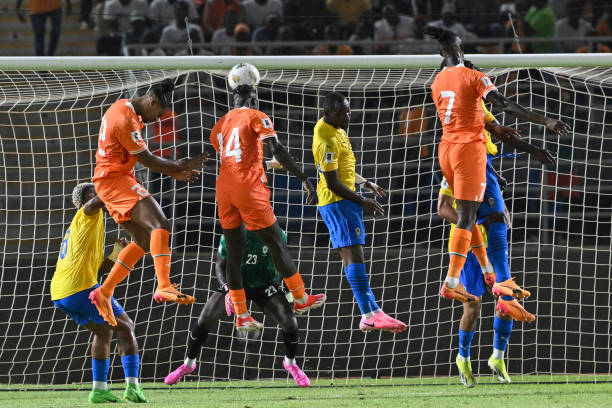
However, as African football continues to grow, more teams are competing at the highest level, and the future looks bright. With more slots, better infrastructure, and a new generation of top talent, it may only be a matter of time before an African team wins the FIFA World Cup. 🌍⚽









